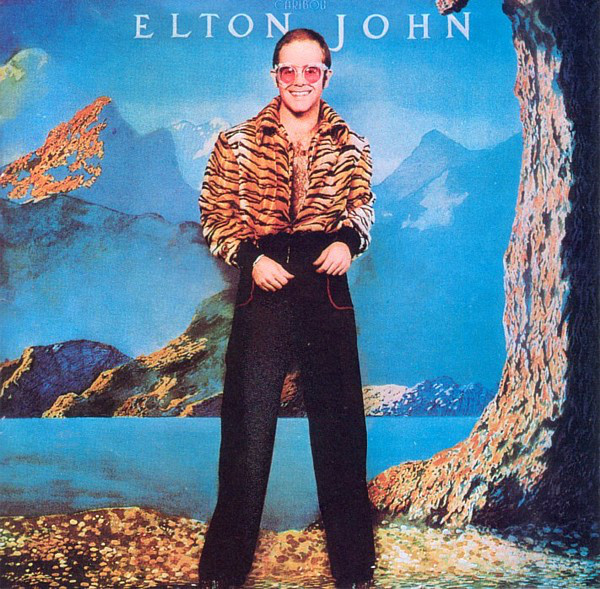Bless him, for all his tantrums (and tiara’s), Elton John has enjoyed a career reassessment over the last two decades to the point where he’s now arguably as popular as he’s ever been since the mid 70s. Perhaps more crucially, Elton understands and agrees that his 1970-1975 work is his most popular material, and does not resist this opinion.
Thing is, there are still the unbelievers, those who see Elton John as nothing more than a slightly ridiculous figure who has never achieved the level of exalted cool of say, David Bowie.
“But these albums, these albums are brilliant” I will opine, waving Tumbleweed Connection and Goodbye Yellow Brick Road at them, “They still stand up as excellent music today! And Yellow Brick Road is one track away from being that elusive thing – a flawless double album!”.
“Really?” they ask.
“Really!”
“What about this one?” they ask, picking up Caribou?
“Never mind about that one.”, quickly hiding it under the rest of Elton John’s output from the first half of the 70s.
The thing is, 1974’s Caribou stands out like a sore thumb in Elton John’s early solo career. Slightly shaky debut aside, Elton John and writing partner Bernie Taupin had been on a ridiculously hot streak up to that point, culminating in 1973’s ridiculously good Goodbye Yellow Brick Road, an album which continues to stand as one of pop music’s key statements, and proof that Elton John could do anything he wanted to if he put his mind to it.
Released eight months later, Caribou is proof of what could happen if just the bare minimum of effort was put in.
Kicking off with “The Bitch is Back”, Caribou initially lulls you in to a false sense of security, as it’s a gem of a rocker. Despite this promising start, Caribou starts to unravel pretty damn quickly, as it’s obvious that the rest of the album is pretty barren of Elton’s trademark memorable tunes, indicating that Elton was resting on his laurels after no less than eight albums and a live record in five years. More worryingly, it seemed that Bernie was off the boil too – as there was a dip in lyrical quality too. All this resulted in the first Elton John album that wasn’t even ‘reasonably good’.
It takes until the last two tracks on Caribou for any ground to be regained, with “Don’t Let the Sun Go Down On Me” being a signature ballad, albeit one that I have no personal fondness for, and the oddly compelling closer, “Ticking”. That’s three half decent tracks on a ten track album. It may as well be an EP.
There are reissues of Caribou which feature Elton’s cover of The Who’s “Pinball Wizard”, a number which it could have been easy to make himself look foolish on, but actually it works really well. So why not include it on Caribou when it was first released? I can only put it down to the fact that they didn’t want to draw attention to the fact that, for the first time in his career, Elton John had released an album that was sub-par.














No Comment